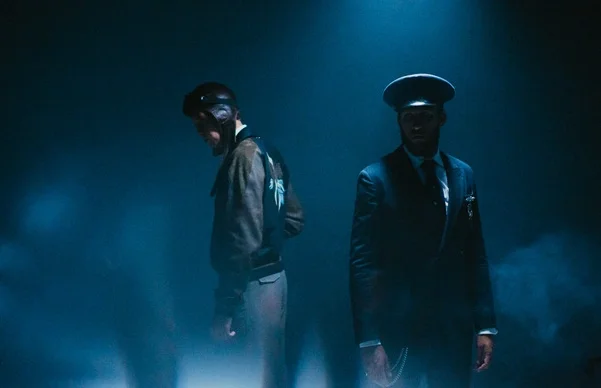Film Review: "Last Flag Flying" is lovely...and underwhelming
Richard Linklater’s films exude a stoned-at-3pm on a summer’s Saturday amiability as the stories therein flow from one little drama to the next. He’s not interested in tightly constructed plots, yet nor does he dip into the morass of melodrama. The structure of Linklater’s films approximate real life, in which a thousand little things are learned and discussed with buddies (or lovers, as is the case with the Before trilogy) on the road to who-knows-where.
He has a gift for making his films, shaggy dog as they usually are, feel like a friend. And so, Last Flag Flying, a road movie centred on three Vietnam vets. It's set in 2003, just at the dawn of the Iraq War. The youngest of this trio, Doc (Steve Carell), has had the roughest go of it: he’s widowed and has just found out that his 21-year-old son was killed in action in Baghdad. He’s required to accompany his son’s body to Arlington, and he needs his two Vietnam vet buddies for emotional support. There’s bar and grill owner Sal (Bryan Cranston), a straight shooter whose obnoxious boisterousness conceals a world of empathy, and Reverend Richard Mueller (Laurence Fishburne), an ex-wild man and former alcoholic who has found a more productive outlet for his tempestuous energy. Sal and Richard bear physical scars from Vietnam, but Doc is burdened with the emotional ones.
What follows is a masterful performance showcase. Cranston, Fishburne, and Carell develop their characters so economically and reveal the layers with such precision that you don’t even realise how much you care about them until the credits roll. The alchemy they produce when on the road together is poignant beyond measure. Shit, they’ll trade not-that-funny ball-busting barbs and you’ll still find yourself smiling (well, I did).
So it's all the more unfortunate when Last Flag Flying dives headfirst into a few McDad Oldguy sitcom-y scenarios (Ie: when the three of them are mistaken for terrorists when they discover the miracle of cellular communication). It’s some hacky tacky crap, way beneath Linklater’s abilities. Bad? Not that bad, sure. Regrettable; it regrettably interrupts a movie that was feeling real.
But those are just details. Where Last Flag Flying really falls frustratingly short of great is in how it refuses to reckon with its uncomfortable undercurrent. The uncomfortable undercurrent that faith in something higher – God, Country, Brotherhood – may be misplaced. The uncomfortable undercurrent that the warm lie is preferable to the cold truth. The uncomfortable undercurrent that such a preference is what perpetuates a culture in which young men are armed and sent to die for no good reason. Last Flag Flying only flirts with these difficult themes, never really going far with them. There's something a little...well, 'fraidy cat about that. Could it be because Last Flag Flying plants its feet at some strange nexus of pro-soldier and anti-government? Is this some tragically American thing, to ignore the Ouroboros in the room? I don't know.
And yet, Last Flag Flying isn’t just disposable feel-good pap, either; it’s tinged with melancholia all the way through. Look to Shane Kelly’s cinematography, where the banal – evening city-scapes, gas stations, diners, bars – is distinctly filmic in a way that allows you to see the world through a sad old man’s eyes. Believe the otherwise light-hearted and wise-cracking Sal when he points to an abandoned steel mill and says, “We don’t make things anymore.” A trite statement. But what does that matter when it's a true one.







